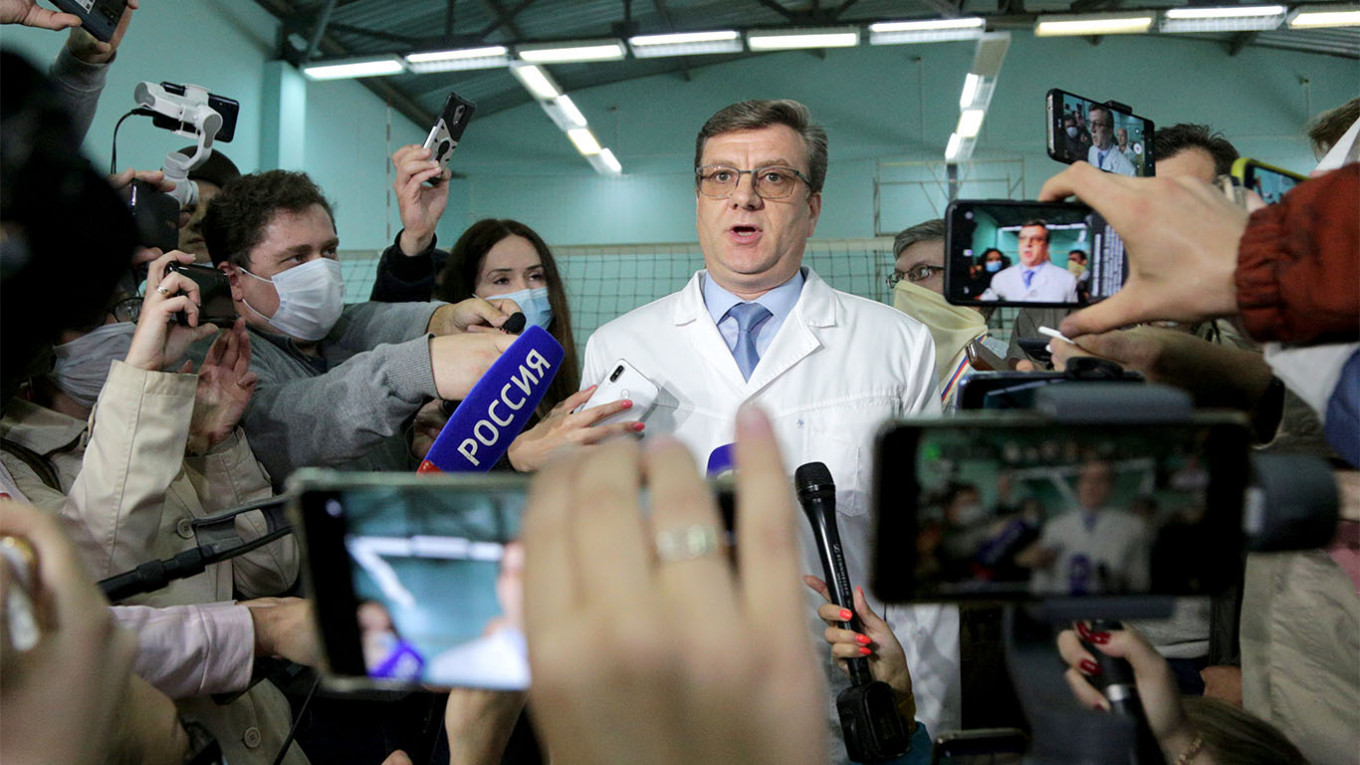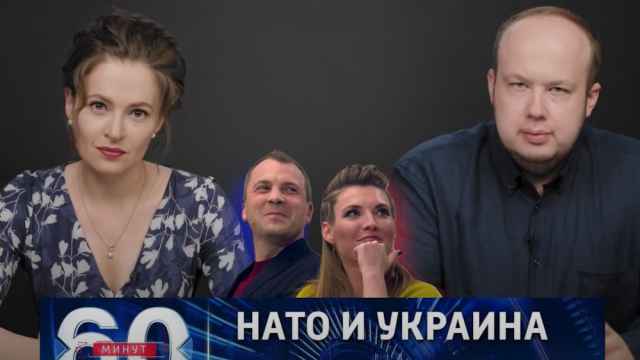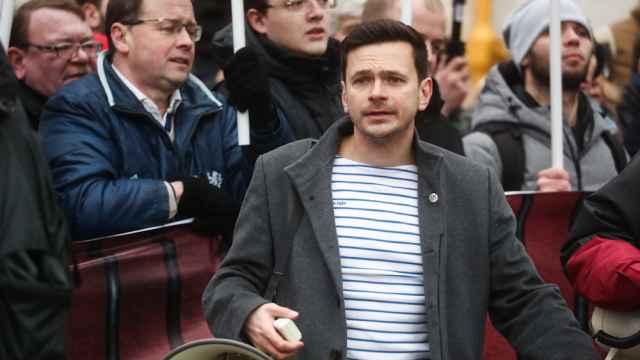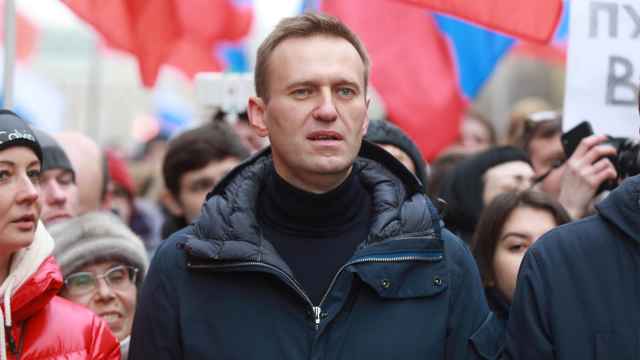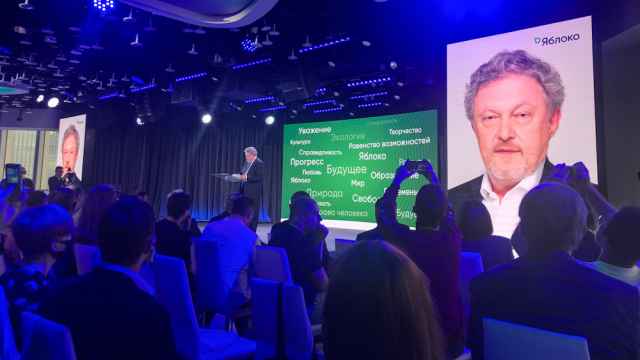Doctors in Siberia who treated Kremlin critic Alexei Navalny for a suspected poisoning before he was airlifted to a hospital in Germany said Monday that their efforts had saved his life.
The 44-year-old opposition politician went into a coma after falling suddenly ill Thursday on a flight to Moscow, forcing the plane to make an emergency landing in the Siberian city of Omsk. He was transported to Omsk Emergency Hospital No. 1, where he remained in a coma and on a ventilator before being evacuated to Germany early Saturday morning.
“The Omsk Emergency Hospital No. 1 made quite an effort to save Alexei Navalny’s life, there can be no doubt about it,” its chief doctor Alexander Murakhovsky said at a press conference.
Navalny’s aides believe he was poisoned by a toxic substance mixed in a cup of tea he drank at an airport cafe in the Siberian city of Tomsk before his flight to Moscow.
They pushed for Navalny to be flown to a leading German toxicology center, citing a lack of vital equipment at the Omsk hospital and a worry that doctors there faced pressure from the authorities.
“There was no and could be no [political] influence on the patient’s treatment,” Murakhovsky said, according to BBC Russia.
The Omsk doctors initially refused to let Navalny leave when the German air ambulance arrived, but reversed course after his family and staff demanded he be allowed to travel to Germany.
While they have said tests showed no trace of any poison in Navalny's system, the German government on Monday said it was "fairly likely" that Navalny was poisoned.
Murakhovsky sidestepped a question on photographs shared on Friday by Navalny’s spokeswoman that show three unidentified men in plain clothes sitting in his office.
“I can’t say who that was. I can’t say that they were doing something,” he said.
A Message from The Moscow Times:
Dear readers,
We are facing unprecedented challenges. Russia's Prosecutor General's Office has designated The Moscow Times as an "undesirable" organization, criminalizing our work and putting our staff at risk of prosecution. This follows our earlier unjust labeling as a "foreign agent."
These actions are direct attempts to silence independent journalism in Russia. The authorities claim our work "discredits the decisions of the Russian leadership." We see things differently: we strive to provide accurate, unbiased reporting on Russia.
We, the journalists of The Moscow Times, refuse to be silenced. But to continue our work, we need your help.
Your support, no matter how small, makes a world of difference. If you can, please support us monthly starting from just $2. It's quick to set up, and every contribution makes a significant impact.
By supporting The Moscow Times, you're defending open, independent journalism in the face of repression. Thank you for standing with us.
Remind me later.


